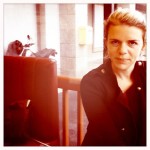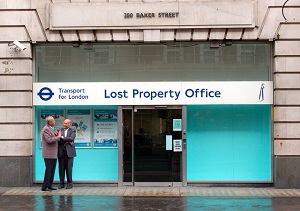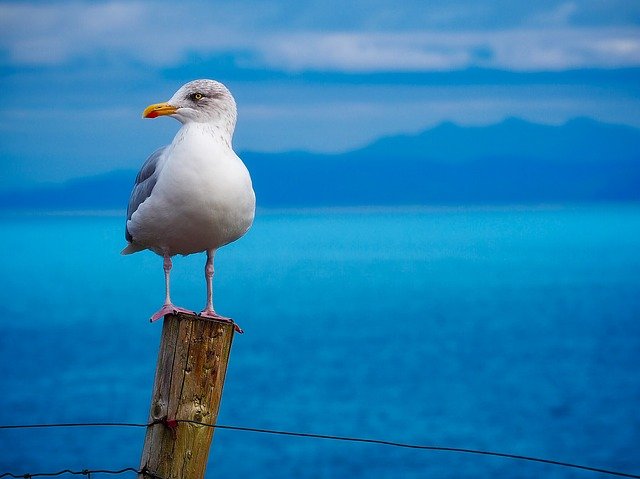You have no items in your cart. Want to get some nice things?
Go shoppingIn the morning, Madeleine awakes from a dream that smells of boiled eggs. She lies under the covers, tired for a moment and then remembers that today is Friday. Today is Friday. She smiles, feels a pain in her lower back and slowly eases her sturdy legs from under linen sheets and woollen blankets. Her gnarled toes touch the cold white tiled floor. ‘You should get a duvet,’ her daughter Florence has told her a hundred times before ringing off, ‘Au revoir maman, bisous.’ Kisses land on the lines of her soft plump cheeks. [private]‘And Camille?’ Madeleine asks, but Florence has gone again, she is always saying goodbye, ‘I have to go maman, je t’embrasse.’ Madeleine edges feet into worn slippers. She has sewn the edges back to the heavy brown felt soles. ‘Make do,’ her mother told her, ‘Waste not, want not.’ Madeleine grew up in the war; she can paint walls, darn, stitch, cook from scratch, milk a cow, knit a jumper, repair shoes, drive a tractor, pluck a chicken and plant and harvest a field of potatoes. From her small seaside flat she now watches the tides rise and fall.
Florence and her husband Pierre chose the flat, moved her house and packed her boxes. ‘You’ll be so, so happy maman,’ her daughter smiles. ‘Move while you’re young, you can make new friends, you can’t live alone in the middle of nowhere. Papa has been gone such a long time now.’ Madeline tries, joins clubs for broderie, stretching, crossword puzzles, local heritage. She tries not to miss the soft chestnut parquet floor that she polished every week on a Tuesday afternoon, the warm smell of a nesting chicken, the empty space on Patrick’s chair. She tries to smile, to nod and is quickly put off by the banter and the lack of air. ‘Réspire,’ her father would say to her as a child, ‘Breathe in and then breathe out, but slowly, then they cannot see your fear.’
Madeleine slips her dressing gown from the back of the door. It hangs on a coat-hanger, blue and worn, subdued. She ties a knot by her hip and takes a look out of the window. ‘Look at the view,’ Florence says when they first visit the flat. ‘Grandma!’ her granddaughter Camille cries out ‘The sea, the sea, la mer!’ The sea stretches out to a blurred blue and grey horizon. The sea is like a mouse today, gently waiting. Madeleine smiles; it is high tide and waves are lapping the shore. It is six o’clock.
She walks to the kitchen and stands by the table, her thick stubby fingers smooth the tea-towel hanging on the back of the chair. She puts water in a saucepan to boil, takes a bowl from the cupboard, fetches the Ricorée, gets a spoon from a drawer, puts the powder in the bowl, pours in the boiled water, sits down at the table and drinks. Madeleine’s life is folded as neatly as her ironed piles of handkerchiefs, stacked in the corner of a darkened wardrobe. It is the morning.
It is the morning and Madeleine eats bread with butter. She finishes and wipes the crumbs from the table and washes her teaspoon, the knife and the bowl. She returns to her bedroom and dresses. She wears a brown skirt, blue tights, a pale blue jumper and a red scarf, a present from Camille. ‘You like red,’ she says to her grandma at Christmas. ‘Red is the colour of revolution,’ Madeleine’s father always says, ‘Do not forget, that red is the colour of the people.’ He wraps big arms around her mother’s broad waist as she stirs the evening soup. ‘Stuff and nonsense,’ she replies. ‘The people should choose their colour, that’s the point.’
Madeleine’s mother wears bright red lipstick to her daughter’s wedding on an early summer’s day. ‘You seem so young,’ she whispers in her daughter’s ear, hidden under the veil, ‘Remember that Patrick is only a man and you are only a woman. Remember to be happy.’ That night the sheets are stained burnt crimson and Patrick snores as Madeleine listens to the sound of her breath in the night and nurses sore thighs.
Madeleine puts on her coat and walks out of her flat, locking the door behind her. The March wind is brisk and cold; she pulls her scarf around her neck, clutches her bag. She glances at the sea and nods; the tide is going out. In the distance she can hear the gentle clinking of the sailboats, of rope against metal. She walks along the beach and then left up the street to the boulangerie. She enters and the bell jangles,
‘Bonjour Madame,’ she says.
‘Bonjour Madame. Half a baguette as usual?’ asks the dark-haired woman from behind the counter.
‘No, Two baguettes please, and I’d like to order deux pain au chocolat for tomorrow morning and four Paris-Brest for Sunday.’ The baker’s wife smiles ‘You have visitors?’
‘Oui, oui,’ says Madeleine quickly. She takes the baguettes, pays and leaves the shop in an uncomfortable jangle, ‘Merci, thank-you, au revoir.’
She walks on to the market where she buys the first spring radishes, primrose-yellow butter, little charlotte potatoes and a chicken. She chooses six eggs, puts them in a box and thinks of cake. On the way home, she stops at the little supermarket, gets flour and strange yoghurts with Smarties. ‘Camille loves them,’ Florence sighs, ‘You can’t fight against the tide of progress.’ She licks her lips, ‘Promise me you’ll get yourself a new coat, I can order one from the catalogue, I’ve got 20 percent off the spring collection. Maman, fais-toi plaisir, treat yourself.’
Patrick stands heavy by the bed, red-eyed, ‘Give me the money you stupid woman.’ She hands over her handbag, too exhausted to argue, six months pregnant with Florence. He takes the francs from her purse and slams the door; she can hear him muttering in the street. Madeleine is ashamed of what the neighbours will think; she didn’t know that men could be like this. Patrick is burnt inside and out from the war. He has a thick purple scar across his back. He cries in his sleep when he isn’t snoring. Madeleine strokes his brow as he whimpers; her fingers try to smooth away the trampling fiends.
Back in her flat, Madeleine takes off her coat and hangs it in the wardrobe. From another coat hanger she takes a nylon button-through overall which she fastens over her solid waist. It is low tide now, twelve o’clock. She fetches a mixing bowl, a spoon and a measuring jug. She mixes sugar and butter, adds eggs and flour, powdered almonds. She spoons the mixture into a greased tray, little rectangular sponge cakes, financiers. She thinks of how she will make hot chocolate and Camille will dip cakes into the sweet brown liquid. They will smile, hair blown into tangles from the sea breeze, cheeks apple bright from the spray.
Madeleine makes herself a light lunch, a slice of ham, a tomato, and une salade verte. She eats a yoghurt for dessert and has a cup of coffee, which she takes into her living room. Every day, she sits and watches the ebb and the flow of the sea. Her day is measured by the pull of the moon. The beach is empty. The sun catches on the watery sand and the pebbles; a glittering, blinding landscape. She can smell the cakes cooking in the oven. She sips hot black liquid from a little cup and feels a slight twinge in her lower back.
‘Go on,’ her friend Marie-Catherine says, holding out a packet of Gitanes blondes, ‘Go on, have one.’ Madeleine has never smoked. She is wearing a red skirt sprinkled with daisies. It is September and it’s raining. She takes a cigarette, smiling shyly at her friend. She lights the end, inhales and coughs. They are sitting in Marie-Catherine’s kitchen drinking coffee and peeling apples for compote. Florence is at school. Patrick is harvesting the potatoes. It is autumn; the orchards are full of fruit. Madeleine tries to smoke and peel and the knife falls and cuts her hand. A drop of blood settles on a crisp white slice of apple.
When Madeleine finishes her coffee, she takes the cup and saucer to the kitchen. She goes to the oven to check the cakes. They are ready. She takes the tea-towel from the back of the chair and slides the hot dish onto the work surface. The cakes are golden and brown. She washes her plate, her knife, her fork, her spoon and her little cup and saucer. She sits down on the chair and looks at the clock; it is nearly two. She must start making dinner. They will be arriving at six o’clock. Florence will be leaving Camille here and then going to spend the weekend at a hotel with Pierre. She has not seen Camille since Christmas.
On Sunday, Pierre, Florence, Camille and Madeleine will eat their lunch together. Madeleine will make roast chicken with little roast potatoes and a green salad with goat’s cheese followed by chocolate Paris-Brest, the big cream cakes that Florence adores. ‘You will order the Paris-Brest, maman?’ Florence asks. ‘Of course, my dear,’ Madeleine replies, and she knows that Pierre will shake his head when he sees the cakes. He will say that Florence should ‘Be careful, fais attention,’ as the weight will fall on her hips. Pierre is slim with tightly-drawn lips and plays tennis every week. His stomach is flat.
Madeleine is small and plump with a mole on her chin. Her hair is wiry and grey and short. She goes every month on a Thursday to see her hairdresser Nathalie. Nathalie is slim, blonde and pretty. She massages Madeleine’s tired old head when she washes her hair. ‘It’s not too hot?’ she asks as the water flows. ‘Pas trop chaud?’ ‘Non, non,’ Madeleine replies and lets Nathalie’s fingers work their way along her scalp, around the nape of her neck. She wishes this could last forever, the water, the hands, the tender kneading of soft tissue and bone.
Madeleine gets up from her chair and eases the cakes from their metal shells. She fetches a Tupperware and puts the cakes in the plastic box. ‘What would Camille like for dinner?’ she asks Florence. ‘Pasta, les pâtes, les pâtes,’ Florence says, laughing. ‘Don’t fuss maman, give her pasta, I have to go.’ Madeleine can hear Pierre muttering in the background. She does not want to feed her granddaughter pasta, she will make a purée maison, she has bought the potatoes especially. She will feed Camille homemade mashed potatoes and grilled sausages. She wants to put weight on the little urban bones.
She takes the potatoes from a sack in the cupboard. ‘Never put potatoes in the fridge,’ her mother said when the huge humming white metal boxes arrived in their kitchens. ‘The vegetables need a little warmth, the cold kills the taste.’ Madeleine goes to her fridge and takes out milk and butter. There are scant provisions on the shelves, this morning’s purchases; the strange Smartie desserts, the chicken, the radishes, a lettuce, green beans, goat’s cheese, plain yoghurts, a few slices of ham. Madeleine eats little, but does not seem to lose weight. The flesh hangs on her skeleton, a thick immobile layer like a heavy winter coat that she cannot remove.
She takes a knife from the drawer and puts the radio on. It’s nearly time for her daily quiz show. It’s the local radio station and they are talking about computers and Madeleine does not understand. This is part of growing old, she thinks, when the world speaks a language you no longer comprehend. Her husband Patrick would not even use a bank card to pay for the shopping at the supermarket. He cried when they took him from his farm to the hospital to die. ‘I want to die on my land, ma terre,’ he said.
It’s a computer mamie,’ Camille giggles ‘A computer, grandma.’ She takes Madeleine into her bedroom at Christmas and sits in front of the screen. Camille is proud of her new plastic box. The little girl’s fingers tap on the keyboard, her pupils enlarge, she moves the mouse and is lost in the phosphorescent surface. ‘Yes, Camille,’ her grandma answers, watching, and sits heavily on the pink princess duvet cover on her granddaughter’s bed.
It is three o’clock in the afternoon. The radio quiz has finished; Madeleine managed to answer a lot of the questions, she was always good at General Knowledge. She can still recite the 100 French départements, including those situated overseas. She spreads a sheet of newspaper on her kitchen table. She puts the knife and the potatoes on the paper. She takes a saucepan from a cupboard, fills it with water, adds salt and puts it on the gas ring. She takes matches, lights the gas ring under the saucepan and sits at the table to peel the potatoes. She removes the brown skin in neat thin slices. By the time she has peeled ten potatoes the salted water is boiling. She drops them one by one into the saucepan. The telephone rings. She walks into the living room and looks out at the sea. The tide is rising. She picks up the receiver. It is her daughter, Florence.
‘Hello maman.’
‘Hello darling.’
‘Maman, Pierre has a problem with work. I am sorry, we won’t be coming this weekend. I’ll ring this evening and we’ll book another time soon. We’ll try to come before the summer. I’m sorry I can’t talk for long. I’ll ring this evening. I’ve got to go. Kisses maman, bisous.’
‘Au revoir, Florence.’
Madeleine puts the phone down. She looks out at the sea. The tide is coming in. She walks into the kitchen and turns off the heat under the saucepan. She takes the pile of peel in the bundle of newspaper and puts it in the bin. She stands by the table and her thick stubby fingers smooth the tea-towel hanging on the back of the chair. Madeleine closes the kitchen door. She takes the tea-towel from the back of the chair and pushes it into the gap at the bottom of the door. She closes the kitchen window. She opens the oven door, she turns the gas on, and she eases her head inside the oven, smelling the soft, sweet vapours. She closes her eyes and feels a pain in her lower back. She lies on the cold white tiled floor, her gnarled toes shift inside her brown felt slippers. Slowly, she falls asleep.
At six o’clock in the evening the tide is high, the waves are lapping the shore. Madeleine does not mash her potatoes; she does not grill her sausages. The little rectangular sponge cakes wait in the plastic box on the kitchen surface. Camille will not eat them. In the fridge the chicken sits with goat’s cheese, the lettuce, the radishes, the Smartie desserts, the yoghurts, the ham and the green beans. Madeleine’s telephone rings; it is Florence. Madeleine does not answer the telephone. In the distance is the sound of the gentle clinking of the sailboats, of rope falling against metal.[/private]

Susanna Crossman is a writer, drama-therapist and lecturer based in North-Western France. She has just completed her first novel, Walking on Stone. She also writes short stories (Glimmertrain, Pygmy Giant, Bristol prize short-list) and plays (Festival Mythos, Compagnie VO). Her academic work has been published internationally (Elsevier Masson, Frank & Timme, Kangwon University). Read more at: www.susanna-crossman.blogspot.com






A sad but beautifully written story. The mundane rituals and routines of a lonely life are poignantly captured. Compelling stuff.